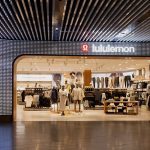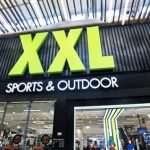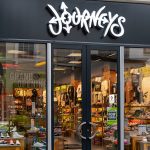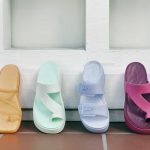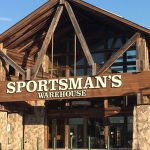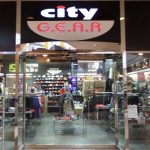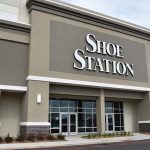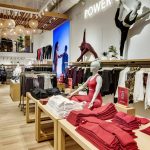By Thomas J. Ryan
<span style="color: #a1a1a1;">Rocky Brands Inc.’s sales were slightly down and adjusted earnings flat year-over-year in the second quarter despite COVID-19’s impact, handily topping Wall Street’s targets. On a conference call with analysts, Jason Brooks, president and CEO, said, “Despite being up against the most difficult operating conditions we have ever experienced, our business exhibited increasing strength as the quarter progressed.”
In the quarter ended June 30, sales were down 9.4 percent to $56.2 million compared to $62.0 million in the second quarter of 2019. Wall Street’s consensus target had been $42.1 million.
On an adjusted basis, which excludes expenses related to the temporary closure of the company’s manufacturing facilities due to COVID-19, earnings were $3.2 million, or 44 cents per share, compared to net income of $3.2 million, or 42 cents, a year ago. Wall Street on average was expecting a loss of 16 cents a share. Reported earnings after the closure-impact were $2.4 million, or 33 cents.
Wholesale, its largest segment, was down declined 15.6 percent to $34.3 million, somewhat offset by an increase in retail sales by 15.8 percent, to $16.3 million. Retail represented approximately 29 percent of its Q2 sales, up from 23 percent a year ago.
Brooks credited efforts made by the company in the past few years to improve the desirability of its brands through impactful marketing programs, enhancing its product lines through innovation and building out its direct-to-consumer channels.
“We were able to capitalize on the acceleration in online spending that occurred as a result of the stay at home orders,” said Brooks. “Under the circumstances, our business performed relatively well in our wholesale channel, with sell-through on our partners’ websites, up over last year early in the quarter and then picking up at brick & mortar later in the quarter, as more stores reopened or resumed more normalized hours in operations.”
Wholesale Revenues Paced by Georgia Boot And Rocky Outdoor
In the wholesale segment, Rocky estimated that approximately one-third of its wholesale partner doors were temporarily closed in the earlier part of the quarter, while the other two-thirds were designated essential businesses and remained open. Beginning in May, many of the locations that were closed began to reopen, and by mid-June, close to 95 percent of all wholesale doors were opened.
“This trend along with the strengthening of the U.S. consumer, which we believe has been driven in part by federal stimulus actions, fueled a meaningful month-to-month improvement in sell-through of our products for the data we received from several of our large retailers,” said Brooks. April’s wholesale sell-throughs were down almost 30 percent and off 10 percent in May before increasing mid-single-digits in June.
Among categories, work was led by Georgia Boot, which remained in demand by workers on the job during the pandemic. Georgia Boot saw certain key styles start to outpace supply late in the quarter and the brand had to chase some inventory.
Rocky Outdoor enjoyed a strong second quarter as well. Said Brooks, “With people not traveling as much and staying closer to home due to COVID-19, combined with the social distancing measures in place, more people have turned to outdoor activities for entertainment and our hunting boot business was a beneficiary of this dynamic. Sales were also helped by several compelling new products introduced this year that have strongly resonated with our core consumer.”
The western category, led by Durango, was under the most pressure at wholesale early in the quarter as many key accounts adjusted their assortments to serve the essential workers. Sales trends improved as the quarter progressed and more consumers started returning to stores. On the bright side, gross margin in the western business was up several hundred basis points as the number of markdowns and discontinued product sales were far below last year’s levels.
E-C0mmerce Revenues Jump 144 Percent
The 16 percent growth in the retail segment was driven by a 144 percent hike in online sales with Georgia, Rocky and Durango all increasing strong triple-digits. A surge in new customer acquisitions, along with strong demand from existing customers, occurred amid the online shift. Said Brooks, “I believe the work we’ve done enhancing the functionality of our branded desktop and mobile sites and expanding our direct-to-consumer efforts on marketplaces, particularly Amazon, where you’ll recall we gained Seller Fulfilled Prime Status last year, has provided us the opportunity to capitalize on this change in buyer behavior.”
Finally, the Lehigh safety shoe business was active signing up new accounts but the pandemic forced the business to shift focus to more remote fittings versus the usual on-site events, depressing volume.
Brooks said the increase in retail sales helped fuel 180 basis point improvement in adjusted gross margins, enabling the company to deliver a slight year-over-year improvement in adjusted EPS, despite the overall sales decline.
Gross margin in the quarter 34.6 percent compared to the same 34.6 percent a year ago. Adjusted gross margin, which excludes approximately $1.0 million in expenses related to the temporary closure of manufacturing facilities, was 36.4 percent.
Operating expenses were $16.4 million, or 29.1 percent of net sales, for the second quarter of 2020 compared to $17.5 million, or 28.2 percent of net sales, a year ago.
Flat Sales Seen For Second Half
Brooks said with the better-than-expected performance, Rocky decided to repay the $20 million it drew down on its credit facility in March as a precautionary measure in response to COVID-19. After the repayment, the company still had nearly $26 million in cash and cash equivalents, a 64 percent increase over a year ago, and zero debt on its balance sheets.
“While sales trends improved as the second quarter went on, and this positive momentum carried into July, our number one priority continues to be ensuring the health and safety of our employees, our customers and the communities we operate in,” said Brooks. “With that in mind, we are proceeding cautiously, but do expect our business during the second half of the year to improve versus second quarter metrics.”
The company expects overall sales to be roughly flat, compared with the second half of 2019. Wholesale is expected to continue to recover and e-commerce trends are projected to remain strong.
“What we can see in our order book indicates retailers are more bullish in the immediate term and a bit more cautious about later in the year,” said Brooks. “We are certainly expecting things to remain volatile in 2021. And while we don’t know what the ultimate impact COVID-19 will have on our industry and the overall economy, I’m confident that the combination of our people, business model and balance sheet have Rocky well positioned to navigate the current headwinds and emerge from this period poised for long-term success.”
Photo courtesy Rocky Brands


